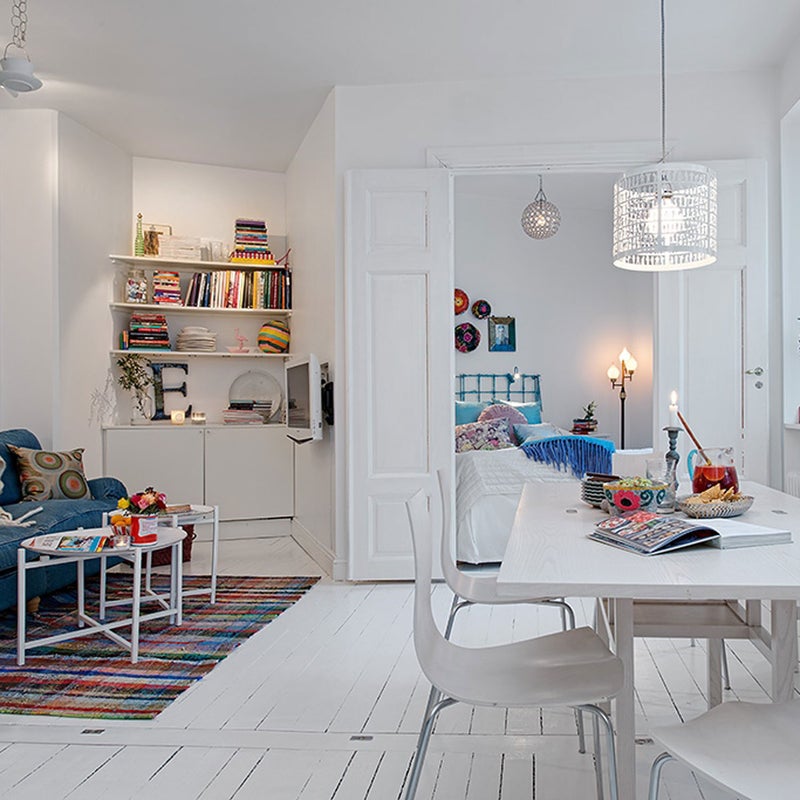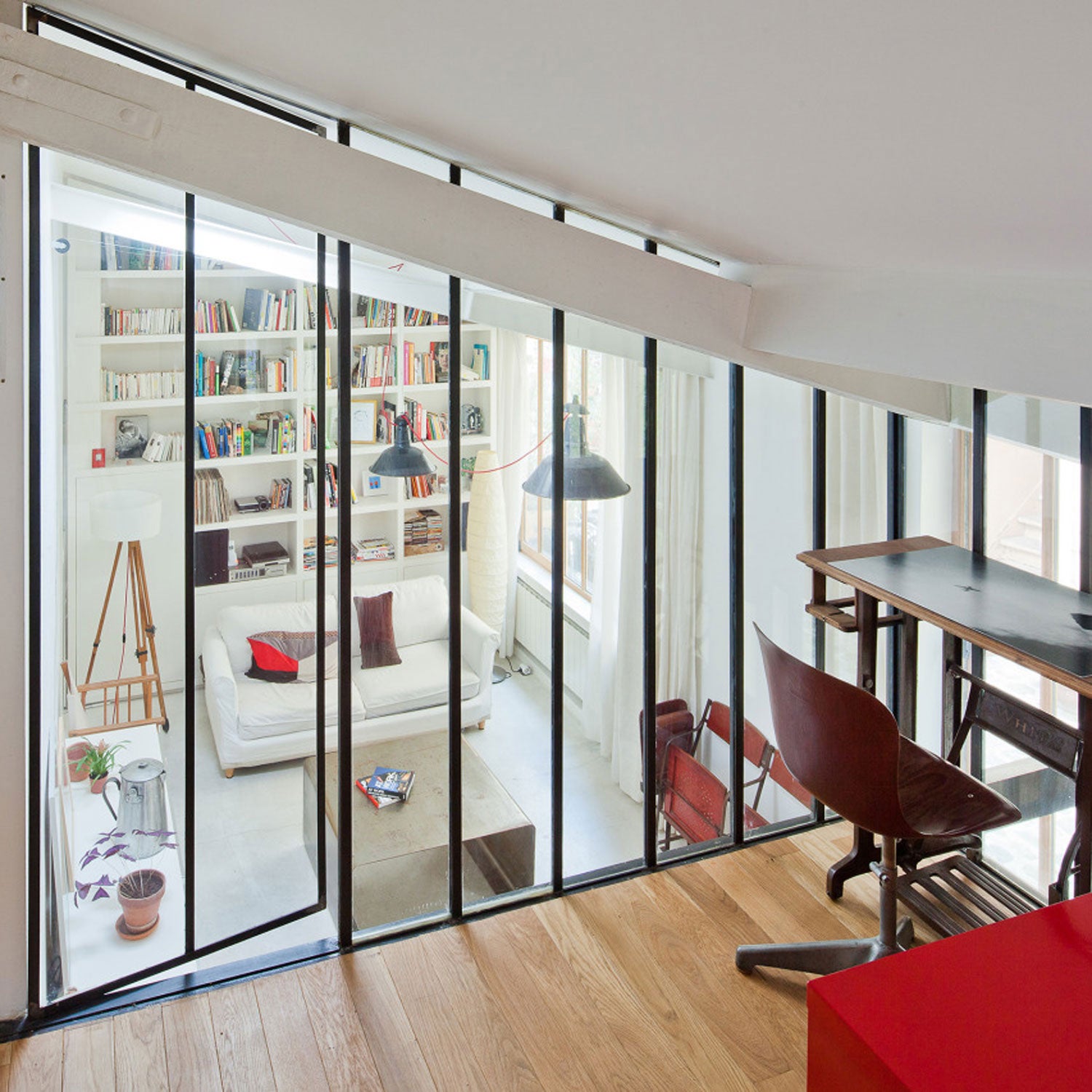How to Decorate Your Small Space
Whether you’re pimping out a camper or downsizing into a tiny home (maybe even with wheels!), efficient design matters. The main considerations when decorating a small space are simple: look for multi-purpose furniture; buy the best quality gear you can afford (it’ll last much longer); and banish clutter. Once you’ve nailed those basics, follow these seven tips to live large in your small home.
Flow is essential: Eliminate obstacles so that air, light, and people can easily move throughout the space. Think about where you want to cook, eat, and sleep, and then create a smooth sequence that fits your habits. Avoid corridors that waste space and block flow. Define your open spaces with carpets and furniture, not walls.
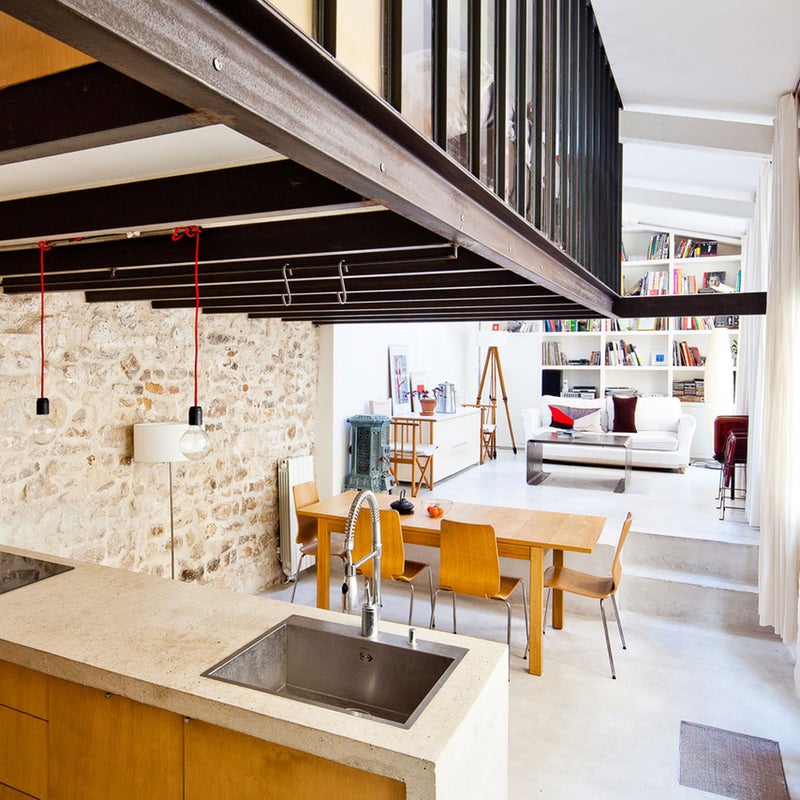
Flow is essential: Eliminate obstacles so that air, light, and people can easily move throughout the space. Think about where you want to cook, eat, and sleep, and then create a smooth sequence that fits your habits. Avoid corridors that waste space and block flow. Define your open spaces with carpets and furniture, not walls. (NZI Architectes)
Paint!
Choose warm colors in light hues so walls look like they recede. Dark colors can make a space seem even smaller than it is. Paint your ceiling the same color as the walls to create a continuous expanse. If anything, go one shade lighter on the celling, which can appear darker than the walls.
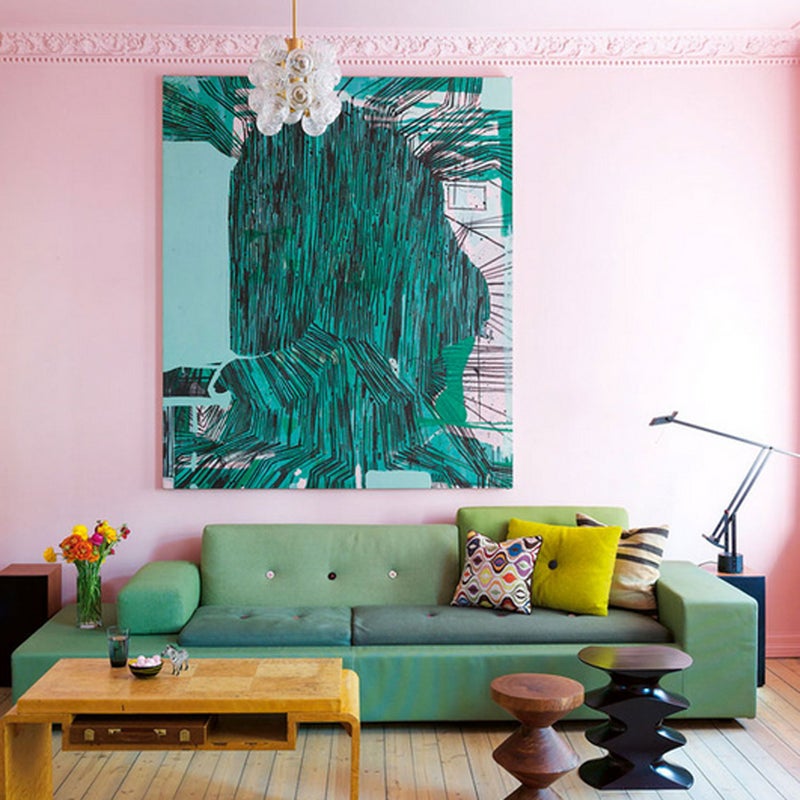
Build a Good Foundation
Dark color and weighty furniture should ground your interior. Art, accessories, and details lighten up the space as they approach the ceiling.
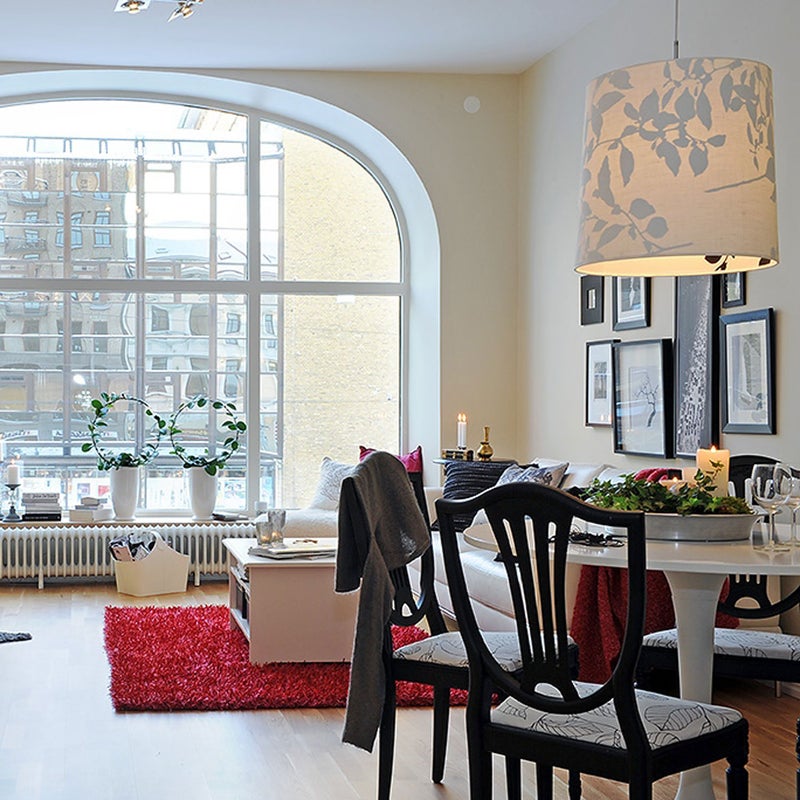
Create Balance, Not Symmetry
Imbalance is especially evident is small areas. Creating balance doesn’t mean you have to avoid asymmetry: it just requires an overall equity of scale and color. Avoid stark contrast and large, overbearing décor.
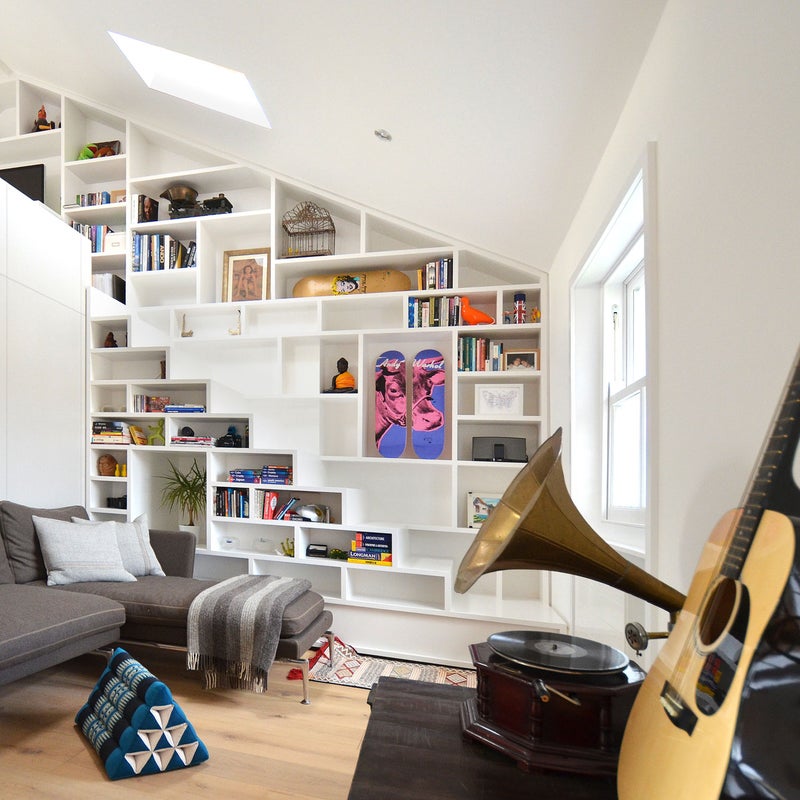
Let in the Light
Maximize both daylight and artificial light, as brighter spaces feel larger. If you’re using drapes, go with sheer fabrics to filter light or install top-down bottom-up shades that maintain privacy while still letting light in. Try translucent room dividers, open shelving, or walls with windows at the top to break up the space. Finally, look for reflective surfaces such as mirrors, glass, and metals to amplify light.
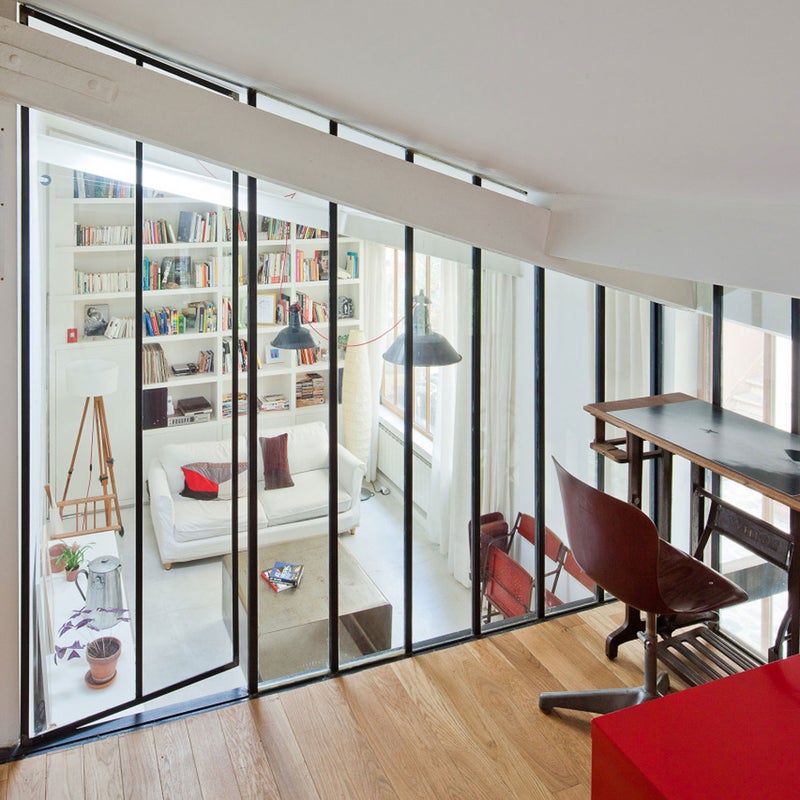
Be Efficient
Use multi-purpose furniture that’s sized for comfort. Tiny pieces that aren’t comfortable are a waste of space. Try nesting tables, dining table and desk combos, and sofas that double as a guest bed. Use furniture that’s light on its feet with exposed legs that let light pass through the room.
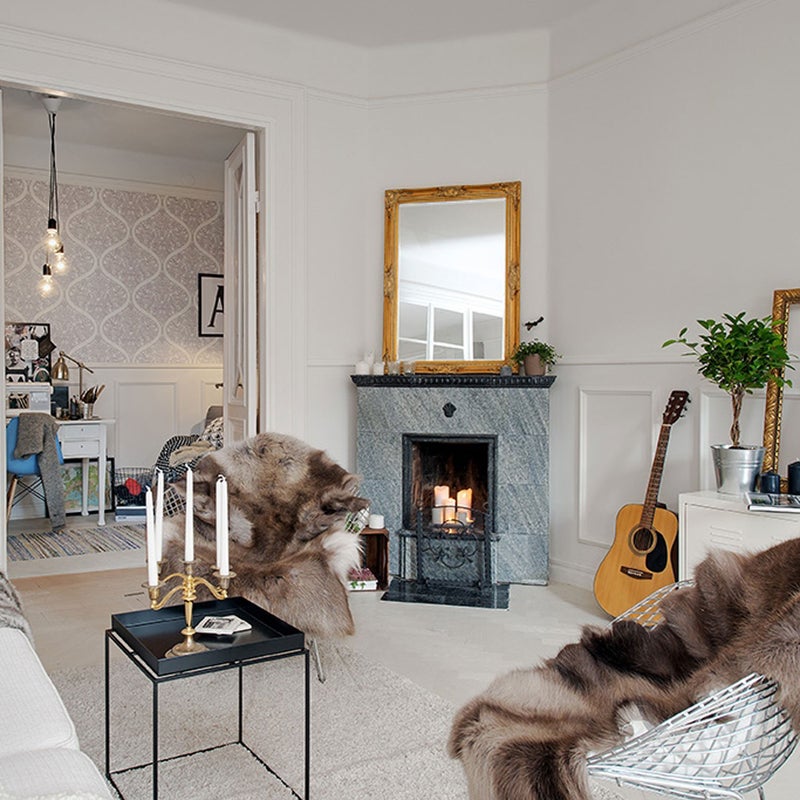
Customize It
You’re sacrificing square footage, not personality. Go ahead and mix it up with a blend of styles that make you happy. Create a focal point at the heart of your home, or the space that you use the most. Unify a mix of styles with a single color that repeats throughout the space.
